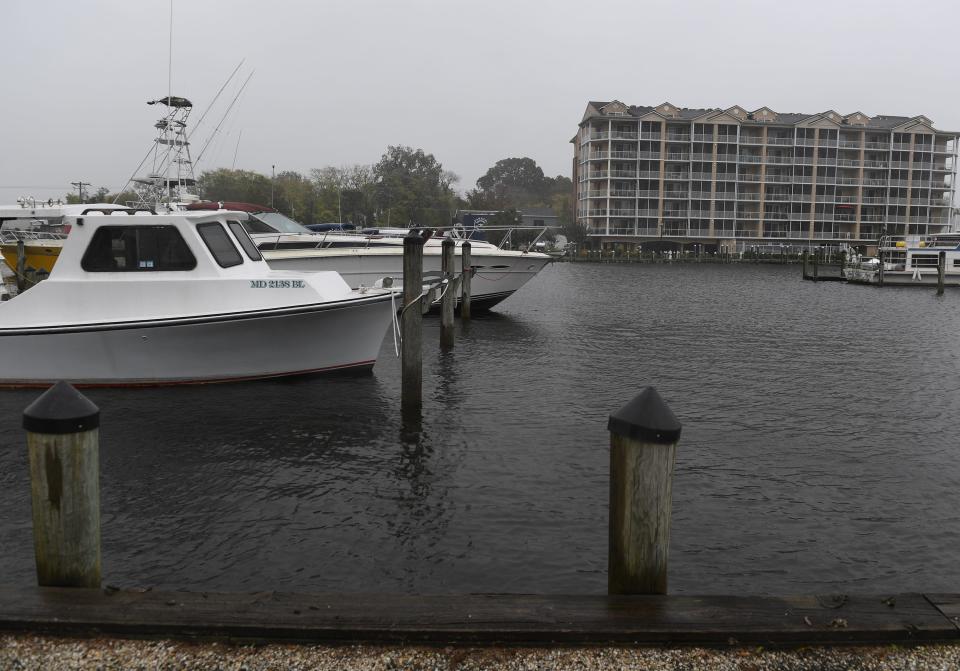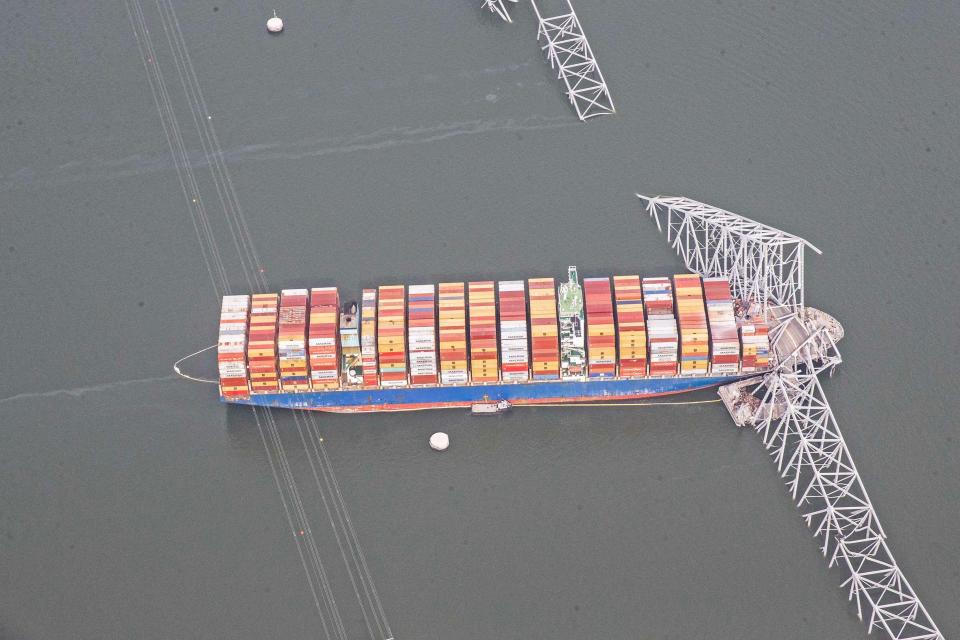Port of Salisbury will feel impact of Baltimore Key bridge collapse. Here's how.
Following the collapse of the Francis Scott Key Bridge on Tuesday, causing massive disruption and delays at the Port of Baltimore, questions abound concerning what that means for the state and the Port of Salisbury.
As the second-largest location of its kind in Maryland, the Salisbury site transports more than $200 million in goods annually, including grain, petroleum and building aggregates, according to city data. It has a 150-foot-wide channel and 14-foot-deep mean tide from the Chesapeake Bay to Salisbury. Maryland now grapples with the delays to various industries, including some on the Eastern Shore heavily dependent on Baltimore's cargo.
"The city is committed to the Port of Salisbury as a key part of our economic profile and is open to considering future development opportunities," said Shawn Yonker, a spokesperson for the city. "It's important to note we're not in a position to help a great deal with the regular traffic to the Port of Baltimore. The port in Salisbury is only set up for bulk unloading including grains and fuel, and cannot unload containers or vehicles like in Baltimore."
Initial story on bridge collapse: Gov. Moore: Ship traveling at high speed in Francis Scott Key Bridge collapse in Baltimore
In 2020, the city conducted a feasibility study to see what it would take to increase the Port of Salisbury's economic viability. The study found a multi-user port terminal on Marine Road that supports the movement of dry bulk cargo would require an upfront capital investment of about $22.8 million.
This investment would include improvements to the site, waterfront mooring area construction and improvements to Marine Road. In addition to this investment, an estimated $271,000 per year would be needed to support the work of a port administration to manage the property and conduct business development.
'Not sure' there will be additional business to Port of Salisbury

David Ryan, director of the Salisbury-Wicomico Economic Development, echoed those sentiments in noting the difference between the two ports.
"The ports of Salisbury and Baltimore are vastly different. Salisbury is an inland, bulk product port, while Baltimore handles everything from automobiles to containers to bulk products on a much larger scale," Ryan said. "Without the infrastructure, water depth and market, I'm not sure Salisbury’s port will see additional business due to the tragic events in Baltimore though if we can help, we’d like to do so."
Ryan also contended some existing users of Salisbury’s port will likely be impacted and may need to route their supply using alternate ports or different modes of transportation, at least temporarily.
More on families in the incident Francis Scott Key Bridge 'connected family, communities, jobs' in Baltimore
"Salisbury’s port plays a key role in our regional economy by allowing for the cost-efficient import of bulk products including petroleum, grain and aggregates. Over a million tons are shipped annually along the Wicomico River that supply key industries of agriculture and poultry, construction and energy," Ryan said.
Ryan also speculated that other users, like ship construction and repair companies, depend on a "viable and active" commercial waterway in Salisbury. In a statement to Delmarva Now, a spokesperson for Perdue Farms said they do not anticipate any issues in their supply chain and production.
"“Because of the scale and flexibility of our supply chain, we are able to mitigate any potential impact on our business operations in and around the state," spokesperson Bill See said.
'Rerouting barges' and impacts on grain supplies
John Hickman, director of the Business Economic and Community Outreach Network based out of Salisbury University speculated the temporary slowdown at the Baltimore port will mean equally temporary means of delivering goods.
"From the container perspective, there's probably a limited and direct impact in Salisbury," Hickman said. "What's more likely is the rerouting of and unloading of barges delivering grains to other parts of the Chesapeake Bay. There may be some chance that activity will move to the Port of Salisbury"
Dr. Stephan L. Tubene, professor and acting chair of the Department of Agriculture, Food and Resource SciencesCenter of Excellence for Global Food Security and Defense at the University of Maryland Eastern Shore also contended a channel not open in Baltimore also impacts the estimated 140,000 jobs it supports.

"In the long run, there might be impacts on some inventory for the Eastern Shore in terms of agriculture equipment and fertilizer. In the short run, the impact will be minimized. The Eastern Shore is a big location for poultry, but in order to do it, you need input (materials) and the region could see impacts on other areas of agriculture production," Tubene said.
The 2020 study said the city could expect to see opportunities through expansion for small near-term employment growth, increased land values and tax receipts from the opportunity to redevelop the North Prong, the report on the port stated if it was to be further developed.
More on lawmakers' efforts Maryland lawmakers launch effort to aid workers impacted by Baltimore bridge collapse
This article originally appeared on Salisbury Daily Times: Baltimore bridge collapse could have wide-ranging impact on Salisbury

